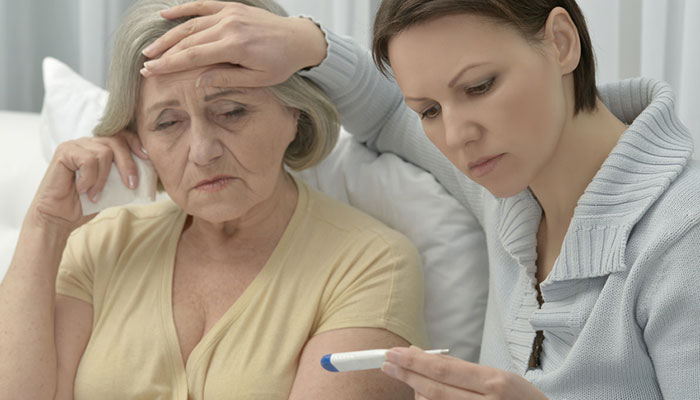
It’s flu season. That can mean pneumonia season is right around the corner. Pneumonia is an infection of the lungs that often develops after a cold or flu.
As a general rule, pneumonia can be treated at home with prescribed medications and rest. But sometimes a case is so severe that it requires a stay in the hospital. More than 50,000 people die each year from pneumonia, most of them older adults.
Call the doctor if your loved one experiences
- difficulty breathing or shortness of breath;
- chest pain or pressure;
- fever of 102° or higher;
- cough that won’t go away (especially if it brings up yellow or green mucus).
Prevention
- Get the two pneumonia vaccines. There are two shots, each targeting different bacteria, and they should be taken one year apart. Only 61% of older adults have received even one pneumonia vaccine. Talk to the doctor to find out what your relative needs to be current.
- Get a yearly flu vaccine. Avoiding influenza helps prevent pneumonia as well. The flu virus changes every year, so the vaccine should be updated. It’s best to get vaccinated by November, but December is better than no vaccine at all!
- WASH YOUR HANDS! This is the single most important thing you can do at home to prevent the spread of infection. It is especially important during cold and flu season.
- Clean surfaces, door knobs, and sink and toilet handles. These are common household locations where germs transfer easily.
- Avoid touching eyes, nose, and mouth. Germs gathered by the hands enter the body through these mucus membranes.
- Cough into a tissue or the sleeve of the upper arm. Controlled coughing reduces the spray.
- Limit contact with smoke. Encourage your relative to stop smoking. Have others smoke outside.

